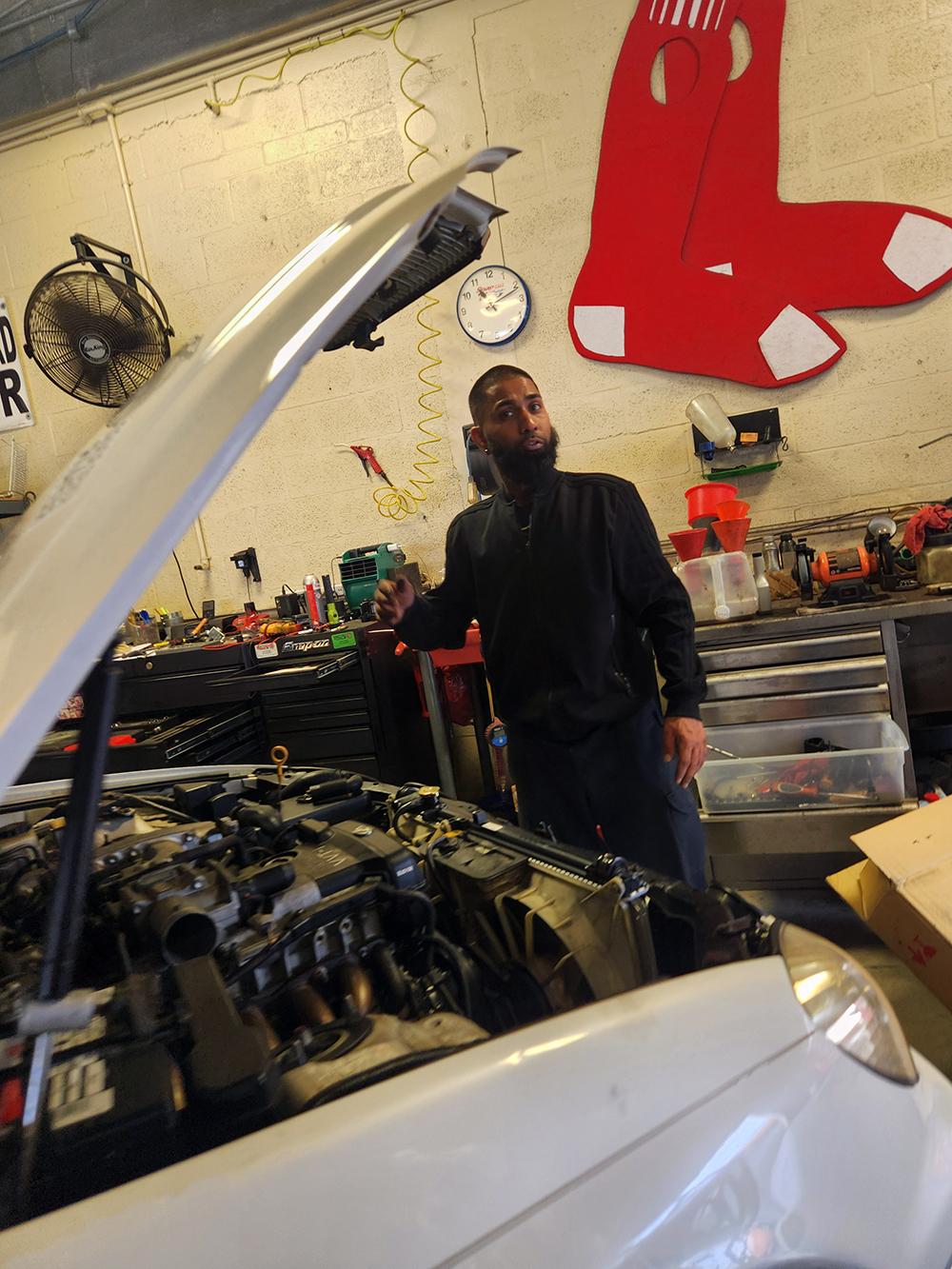All Categories
Featured
The timing belt is a vital part of your engine, responsible for synchronizing the activity of numerous engine parts, such as the crankshaft and camshaft. While the timing belt might not be something you assume about typically, disregarding its maintenance can lead to substantial engine damages and expensive repair work.
What Is a Timing Belt and Just How Does It Function? The timing belt is a rubber or composite product belt that attaches the crankshaft to the camshaft in an interior combustion engine. The camshaft regulates the opening and closing of the engine's consumption and exhaust shutoffs, and it must be timed completely with the activity of the pistons in the engine. The timing belt makes sure that these parts are in sync, permitting the engine to run smoothly.
If the timing belt ends up being or fails broken, the camshaft and crankshaft will no more be synchronized, which can create the engine's valves to strike the pistons. This results in devastating engine damage and usually needs costly repair services or also an engine replacement.
Why Is Timing Belt Replacement Important? With time, the timing belt can put on down as a result of rubbing, warm, and general engine wear. While it may appear like a tiny problem, a damaged timing belt can result in serious engine problems. Right here's why timely replacement is essential:
Avoiding Engine Damage: As mentioned, a broken or sliding timing belt can cause the engine's pistons and valves to collide. This leads to curved valves, harmed pistons, and in severe cases, a complete engine failure. Replacing the timing belt before it breaks can avoid this costly damages.
Keeping Engine Efficiency: A worn-out timing belt can interfere with the synchronization of the engine parts, lowering general engine performance. Changing the belt helps maintain ideal engine function, making certain smooth operation, boosted fuel efficiency, and much better efficiency.
Preventing Unforeseen Failure: A broken timing belt can leave you stranded on the side of the roadway, triggering a significant hassle. By replacing the timing belt at the advised periods, you can prevent the danger of an unforeseen malfunction, especially in the center of a lengthy trip or when you the very least anticipate it.
![]()
Conserving Cash in the Lengthy Run: While timing belt replacement can appear like an expense you may wish to put off, it's more affordable than the expense of fixing or changing a damaged engine. If the timing belt breaks, the substitute cost is reasonably cost effective compared to the considerable repairs needed. Aggressive upkeep can conserve you countless dollars out of commission and protect your car's value.
When Should You Replace the Timing Belt? The timing belt substitute schedule can differ depending upon your vehicle's make and design. In general, a lot of suppliers recommend replacing the timing belt every 60,000 to 100,000 miles. It's constantly best to consult your proprietor's guidebook or a relied on auto mechanic for details recommendations for your vehicle.
Indications that your timing belt may want replacement consist of uncommon engine noises such as whining or ticking, difficulty beginning the engine, or a noticeable decrease in engine performance. If you experience any of these signs, it is very important to have the timing belt checked immediately.
![]()
Final thought. Replacing the timing belt at the recommended intervals is an essential component of preserving your engine's health and guaranteeing that your vehicle runs smoothly. A damaged timing belt can cause expensive repair work, engine failure, and unexpected failures, which can be stayed clear of with correct maintenance. Constantly follow the producer's recommended timing belt substitute schedule and get in touch with a professional auto mechanic if you see any kind of indications of wear or damage. By maintaining this essential part of your engine in great problem, you'll safeguard your vehicle from costly repair work and appreciate much more miles of stress-free driving.
What Is a Timing Belt and Just How Does It Function? The timing belt is a rubber or composite product belt that attaches the crankshaft to the camshaft in an interior combustion engine. The camshaft regulates the opening and closing of the engine's consumption and exhaust shutoffs, and it must be timed completely with the activity of the pistons in the engine. The timing belt makes sure that these parts are in sync, permitting the engine to run smoothly.
If the timing belt ends up being or fails broken, the camshaft and crankshaft will no more be synchronized, which can create the engine's valves to strike the pistons. This results in devastating engine damage and usually needs costly repair services or also an engine replacement.
Why Is Timing Belt Replacement Important? With time, the timing belt can put on down as a result of rubbing, warm, and general engine wear. While it may appear like a tiny problem, a damaged timing belt can result in serious engine problems. Right here's why timely replacement is essential:
Avoiding Engine Damage: As mentioned, a broken or sliding timing belt can cause the engine's pistons and valves to collide. This leads to curved valves, harmed pistons, and in severe cases, a complete engine failure. Replacing the timing belt before it breaks can avoid this costly damages.
Keeping Engine Efficiency: A worn-out timing belt can interfere with the synchronization of the engine parts, lowering general engine performance. Changing the belt helps maintain ideal engine function, making certain smooth operation, boosted fuel efficiency, and much better efficiency.
Preventing Unforeseen Failure: A broken timing belt can leave you stranded on the side of the roadway, triggering a significant hassle. By replacing the timing belt at the advised periods, you can prevent the danger of an unforeseen malfunction, especially in the center of a lengthy trip or when you the very least anticipate it.

Conserving Cash in the Lengthy Run: While timing belt replacement can appear like an expense you may wish to put off, it's more affordable than the expense of fixing or changing a damaged engine. If the timing belt breaks, the substitute cost is reasonably cost effective compared to the considerable repairs needed. Aggressive upkeep can conserve you countless dollars out of commission and protect your car's value.
When Should You Replace the Timing Belt? The timing belt substitute schedule can differ depending upon your vehicle's make and design. In general, a lot of suppliers recommend replacing the timing belt every 60,000 to 100,000 miles. It's constantly best to consult your proprietor's guidebook or a relied on auto mechanic for details recommendations for your vehicle.
Indications that your timing belt may want replacement consist of uncommon engine noises such as whining or ticking, difficulty beginning the engine, or a noticeable decrease in engine performance. If you experience any of these signs, it is very important to have the timing belt checked immediately.

Final thought. Replacing the timing belt at the recommended intervals is an essential component of preserving your engine's health and guaranteeing that your vehicle runs smoothly. A damaged timing belt can cause expensive repair work, engine failure, and unexpected failures, which can be stayed clear of with correct maintenance. Constantly follow the producer's recommended timing belt substitute schedule and get in touch with a professional auto mechanic if you see any kind of indications of wear or damage. By maintaining this essential part of your engine in great problem, you'll safeguard your vehicle from costly repair work and appreciate much more miles of stress-free driving.
Latest Posts
Reasons Consistent Vehicle Maintenance at Montclare Auto Repair Reduces Costs
Published en
1 min read
Secure Your Financial Investment with Expert Rain Gutter Installation
Published en
1 min read
Discover Cut Costs on Car Maintenance with Montclare Auto Repair’s Special Deals
Published en
1 min read
More
Latest Posts
Reasons Consistent Vehicle Maintenance at Montclare Auto Repair Reduces Costs
Published May 30, 25
1 min read
Secure Your Financial Investment with Expert Rain Gutter Installation
Published May 27, 25
1 min read
Discover Cut Costs on Car Maintenance with Montclare Auto Repair’s Special Deals
Published May 27, 25
1 min read